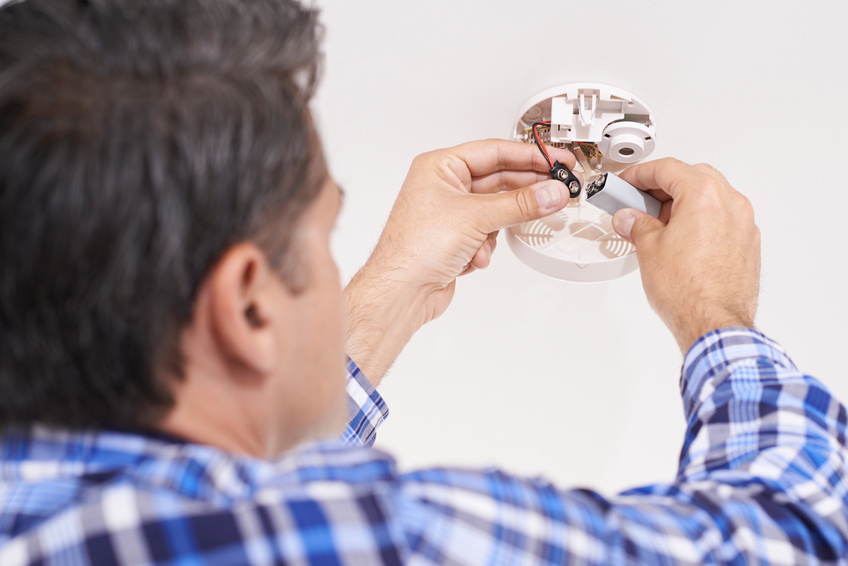Smoke alarms are one of the best safety devices in your home and they really do save lives. As much as we’d all like to think a house fire is something that would never happen to us, you need to be prepared. So, what type of smoke alarm do you need for your home?
Do you have the best Smoke Alarm to keep your family safe?
Smoke alarms are only good, if maintained properly overtime. Some smoke alarms leave a lot less room for human error and are easier to maintain. If you don’t have a working smoke alarm installed in your home, and a fire occurs:
– You are 57% more likely to suffer property damage and loss
– You are 26% more likely to suffer serious injuries
– You are 4 times more likely to die
Not all Smoke Alarms are the same. There are many different types of smoke alarms available these days. However, some offer far more security when it comes to a fire than others. So, what are the different types?
To keep it simple we’ll focus on the three most common Smoke Alarms.
Please note there are both photoelectric and ionisation smoke alarms, however we’re only going to take about photoelectric as that’s what is recommended.
1. 9V Battery Photoelectric Smoke Alarm (Not Recommended)
Battery operated smoke alarms are readily available and can be placed on the ceiling by just about anyone. This type of smoke alarm relies solely on the replaceable 9V battery to operate. Generally, if your smoke alarm doesn’t have a light then it’s most likely not hardwired as they simply can’t spare the power to operate a indication light. If you fail to change the batteries the smoke alarm is useless. They also don’t interconnect with the other alarms in the home.
For example, you have one Smoke Alarm in the kitchen and another in the hallway on the other side of the house. There is a fire in the kitchen, only the smoke alarm in the kitchen will trigger. The second Smoke Alarm won’t trigger until there is smoke in the hallway.
Battery Smoke Alarms are not sufficient as per regulations for new buildings. There are also varying qualities and prices and you can end up with a very poor solution that might not work when you need it most. Bluegum does NOT recommend 9V Battery Smoke Alarms.
2. 240V Hard-wired Photoelectric Smoke Alarm, with 9V battery back-up
240V Smoke Alarms are connected to mains power, most commonly on your light circuit. This type of smoke alarm uses the mains power to operate, however also have a battery back-up just in case of a black out or switchboard fire. As such, you still need to replace the batteries, however, they are only of two sources of power. They can also interconnect with other smoke alarms to all trigger in the event of a fire. These are the minimum requirement for new homes.
3. 240V Hard-wired Photoelectric Smoke Alarm, with 10-year lithium battery back-up
These are for people who don’t own a ladder and would rather throw their shoe at their smoke alarm than remember to change a battery. This type of smoke alarm works the same as the above alarm using mains power and battery back-up. However, they use a lithium battery that doesn’t need to be changed for the life of the unit. Meaning no more changing the batteries when you turn the clocks back. However, they are not completely fool proof, you still need to dust the unit and test regularly to make sure it’s working. Sounds like it was made for your family? Simply click here or call 1300 306 342 get your free quote.
All Smoke Alarms expire after 10 years, and need to be replaced.
To find how to check if your smoke alarm has expired click here.
Remember smoke alarms only save lives if they’re working!
So don’t risk it, make sure you’ve got the best Smoke Alarm for your family, and that it’s working! Have you ever replaced your smoke alarms? Might be a good time to upgrade. Simply book in for a free quote today.
Is your home more than 10 years old? Unsure if your smoke alarms are working?
Simply complete the form below to a get your free safety inspection today.




